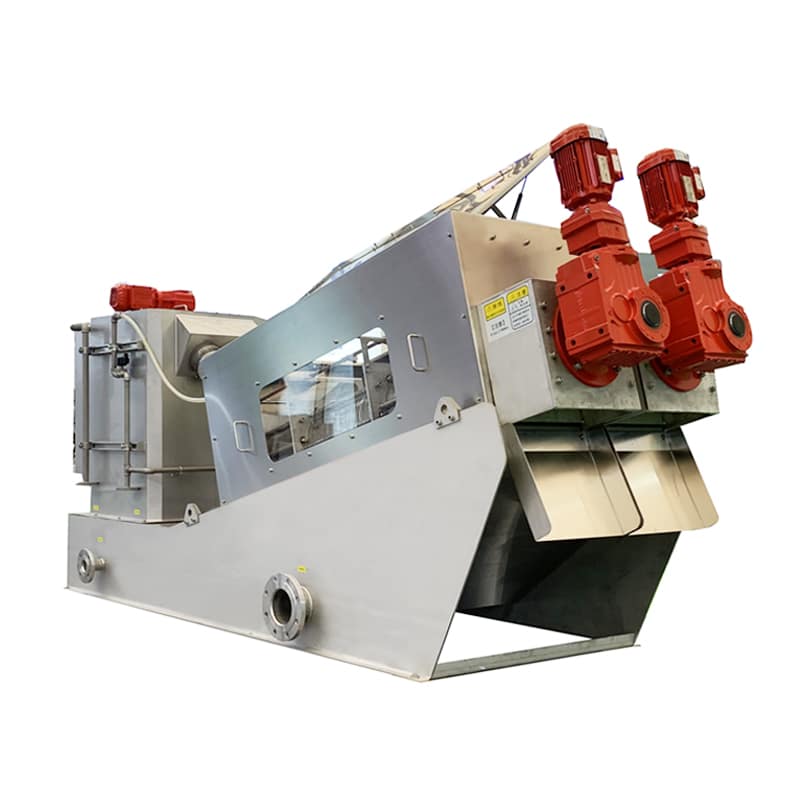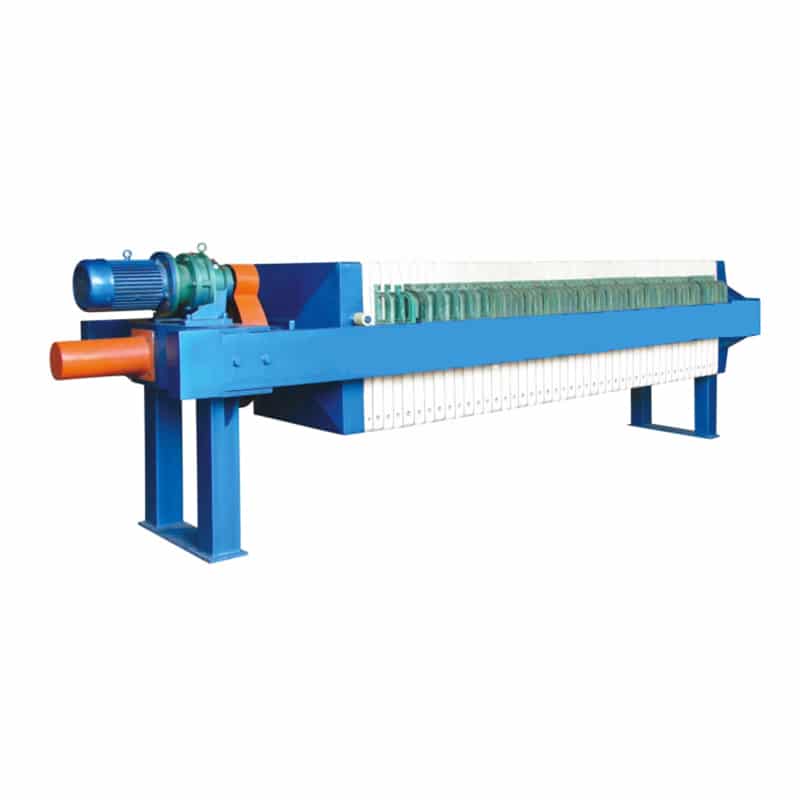It is a common technique used in the treatment of wastewater, sludge, and solid waste. Mechanical dewatering is the process of separating water from solids by applying pressure or centrifugal force, thereby reducing the volume and increasing the water content of the solids. This treatment method is widely used in various fields such as wastewater treatment plants, mining, food processing, and the paper industry.
What is mechanical dewatering?
It is the process of removing water from a solid material by mechanical means. The process typically involves the application of mechanical pressure or centrifugal force to separate water from the solid material, thereby reducing the volume and water content of the waste. Mechanical dewatering is commonly used in the treatment of sewage, sludge, and other solid wastes to reduce transportation and disposal costs, while also helping to improve the treatability of the waste.
In the field of wastewater treatment, mechanical dewatering is commonly used to treat sludge, including activated sludge, mixed sludge, sludge drying piles and sludge drying beds. Through centrifugal dewatering, pressing, and filtration, water is removed from the sludge, thereby reducing its volume and increasing its solids content, making it easier to dispose of or recycle.
Types of Mechanical Dewatering
Centrifugal dewaterers: Centrifugal dewaterers separate solids from liquids by rotational action. At high speeds, solid particles are struck against the walls of the centrifuge by centrifugal force, while water is expelled, resulting in dewatering.
Screw press: Screw presses squeeze moisture out of solid materials by the rotation of a screw. The solid material is gradually compressed by the action of the screw so that the moisture is squeezed out and discharged from the machine.


Filter fresses: Filter presses utilize pressure to separate solids from liquids. The solid mixture is placed in filter plates between filter cloths, and then pressure is applied so that the water is expelled through the cloths, resulting in a solid “sludge cake“.
Areas Of Application for Mechanical Dewatering
Wastewater treatment plant: Mechanical dewatering is used in the wastewater treatment process at wastewater treatment plants to treat sludge, including activated sludge, mixed sludge, and sludge drying piles. Using filter presses, centrifugal dewatering machines, and other equipment, water is removed from sludge to reduce its volume and weight for subsequent disposal or recycling.
Mining: In the mining industry, mechanical dewatering is commonly used to process tailings, waste slurries, and gangue. Equipment such as screw presses can quickly separate water from the ore, increasing solids production and reducing waste volume.
Chemical industry: In the chemical industry, mechanical dewatering is commonly used to treat chemical wastewater and solid wastes, such as waste liquids and residues from chemical production processes.
Other industrial fields: It is widely used in other industries, such as textile, building materials, and pharmaceuticals. Various wastewater and solid wastes must be treated to meet environmental requirements and recover resources.
Mechanical dewatering technology plays an important role in a variety of fields, helping companies to dispose of waste and reduce pollution while improving resource utilization and economic efficiency.
Advantages Of Mechanical Dewatering
Reduced waste volume: Water can be effectively removed from solids to reduce the volume and weight of the waste.
Increase solids moisture content: Through mechanical dewatering, the moisture content of solid waste can be significantly reduced, resulting in drier, denser solids. This helps to improve the utilization of solid waste, such as sewage sludge incineration, landfill, or recycling.
Reduced wastewater discharge: Sludge can be effectively treated to reduce the amount of solid particles and suspended solids in wastewater, thus reducing the level of pollution in wastewater discharges.
Improved waste treatment efficiency: Rapid treatment of large quantities of waste improves the efficiency of waste treatment.
Wide applicability: It is applicable to various types of waste and disposal waste water, including sludge, solid waste, chemical wastewater, food processing wastewater, etc., and has strong versatility.
Highly controllable: The mechanical dewatering process can be adjusted and controlled as needed to meet different treatment requirements.
Mechanical Dewatering Equipment Selection
Selecting the right mechanical dewatering equipment requires consideration of several factors, including the characteristics of the material to be processed, the capacity, the dewatering efficiency, and so on.
Characteristics of the material to be handled
- Viscosity and fluidity: The viscosity and fluidity of the material to be handled need to be considered to determine the most suitable type of dewatering equipment. For example, for viscous materials, a centrifugal dewatering machine may be more suitable, while for granular materials, a filter press may be more appropriate.
- Solids content: Different equipment is suitable for handling materials with different solids contents. For materials with high solids content, equipment such as filter presses or presses may be preferred.
Treatment capacity
Consideration needs to be given to the amount of waste to be treated per day and the selection of an appropriately sized plant to meet the capacity requirements.
Dewatering efficiency
Different types of mechanical dewatering equipment have different dewatering efficiencies. It is necessary to choose the appropriate equipment according to the degree of dewatering required.
Summary
Mechanical dewatering plays an important role in the field of wastewater treatment and solid waste disposal as an efficient and reliable treatment technology.
Kuosi ManufacturerWith the continuous progress and innovation of technology, mechanical dewatering technology is also evolving to provide a viable solution for environmental protection and resource recovery. If you have any questions or need further information about mechanical dewatering technology, please feel free to contact us, the experts will be happy to provide you with support and service.
